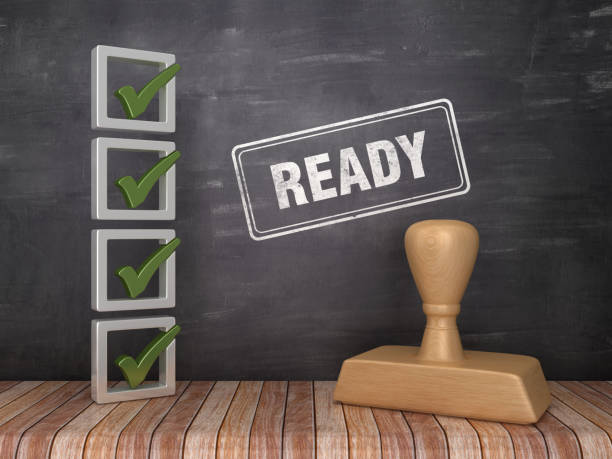
Personal Financial Planning: Tips For Achieving Your Financial Goals
Personal financial planning is the process of managing your finances in a way that helps you achieve your financial goals. It involves setting financial objectives, creating a budget, saving and investing managing debt, and protecting yourself and your assets with insurance.
With sound financial planning, you can create a roadmap to achieve your goals, whether short-term, such as paying off debt, or long-term, such as saving for retirement. A credit report is one important tool that can aid in personal financial planning.
It is important to regularly review your credit report to ensure that it is accurate, as errors could negatively impact your credit score and financial health. Additionally, understanding your credit report can help you identify areas for improvement and take steps to build or maintain good credit.
We’ll discuss tips for achieving your financial goals through effective personal financial planning.
1. Set Clear Financial Goals
What do you want to achieve financially in the short and long term?
Your goals could be anything from saving for a down payment on a home, paying off debt, building an emergency fund, or investing in retirement. Whatever your goals, it is essential to make them specific, measurable, and achievable.
Setting clear financial goals is an essential first step in personal financial planning. Without specific, measurable objectives, creating an effective financial plan can be difficult.
Here are some tips for setting clear financial goals:
- Identify your priorities.
- Make your goals specific and measurable.
- Break down large goals into smaller ones.
- Track your progress.
By setting clear financial goals, you can create a roadmap to achieve your objectives and improve your financial health.
2. Track Your Expenses

Image Credit: iStock
Tracking your expenses is an important part of personal financial planning. By tracking your expenses, you can identify where your money is going and make adjustments to your spending.
Various tools and apps can help you track your expenses, or you can use a simple spreadsheet.
Tracking your expenses will help you to stay on top of your finances and make informed decisions about your spending.
3. Create A Budget
Once you have set your financial goals, it’s time to create a budget. A budget is a plan that outlines how you will allocate your income and expenses over a period of time.
A budget helps you to identify your income sources and track your expenses. Creating a budget helps you to prioritize your spending and identify areas where you can reduce expenses. A budget helps you to live within your means and avoid overspending.
- Record all of your expenses for a month to get an accurate understanding of where your money is going.
- Calculate your total income, including your salary, side hustles, and other sources of income.
- Organize your expenses into categories, such as housing, food, transportation, and entertainment.
- Determine how much you want to spend in each category, and stick to those limits.
- Review your budget regularly to ensure you stay on track and make adjustments as needed.
By creating a budget, you can take control of your finances and ensure that your spending aligns with your financial goals.
4. Build An Emergency Fund

Image Credit: iStock
Building an emergency fund is one of the fundamental components of personal financial planning. An emergency fund is a buffer against unexpected expenses, such as medical bills, job loss, or major repairs.
Without an emergency fund, a single financial emergency could force someone into debt or even bankruptcy. Therefore, it is essential to have an emergency fund as a part of your overall financial plan.
To build an emergency fund, you should set a savings goal. Generally, the goal should be to save enough to cover three to six months of living expenses.
This amount should be sufficient to cover the majority of unexpected expenses, such as rent or mortgage, groceries, utilities, and car payments.
To help you reach your savings goal, you can automate your savings by setting up a direct deposit from your paycheck into a separate account. This will help you to save consistently and avoid the temptation to spend the money elsewhere.
It’s important to prioritize building your emergency fund before investing or paying off debt. While investing and paying off debt are essential components of a strong financial plan, building an emergency fund should take precedence.
Once you have an emergency fund, you can focus on other financial goals. An emergency fund will provide you with peace of mind and financial security, which can help you feel more confident in your financial plan.
With time, discipline, and focus, you can build an emergency fund that will protect you from financial setbacks and help you achieve your financial goals.
5. Invest For Your Future
Investing is an essential part of personal financial planning. Investing allows your money to grow over time and helps you to achieve your long-term financial goals.
Various investment options are available, such as stocks, bonds, and real estate.
It is important to do your research and seek professional advice before investing. Investing can be risky, and it is important to understand each investment’s risks and potential rewards.
6. Review And Adjust Your Plan Regularly

Image Credit: iStock
Personal financial planning is an ongoing process. Reviewing and adjusting your plan regularly is essential to ensure that you are on track to achieve your financial goals.
Review your budget and expenses regularly to identify areas where you can make adjustments.
- Start by revisiting your financial goals and ensuring that they still align with your current priorities.
- Take stock of your progress towards your financial goals. Review your budget, savings, debt, and investment accounts to see whether you are on track to achieve your goals.
- Based on your review, make any necessary adjustments to your financial plan. This may involve shifting your budget, changing your investment strategy, or revising your savings goals.
- Consider seeking the advice of a financial planner or advisor to help you review and adjust your plan. A professional can help you identify areas for improvement and provide guidance on achieving your financial goals.
You can build a solid foundation for financial stability and security by staying proactive and adaptable.
Final Thoughts
Personal financial planning is an essential part of building a secure financial future. You can achieve financial freedom and peace of mind by setting clear financial goals, creating a budget, tracking your expenses, building an emergency fund, and investing for your future.
Remember to review and adjust your plan regularly to ensure that you are on track to achieve your financial goals.
With the right tools and strategies, you can take control of your finances and achieve financial success.
By implementing these tips for personal financial planning, you can create a solid foundation for your financial future and achieve your goals. Start today, and you’ll be on your way to financial freedom.







